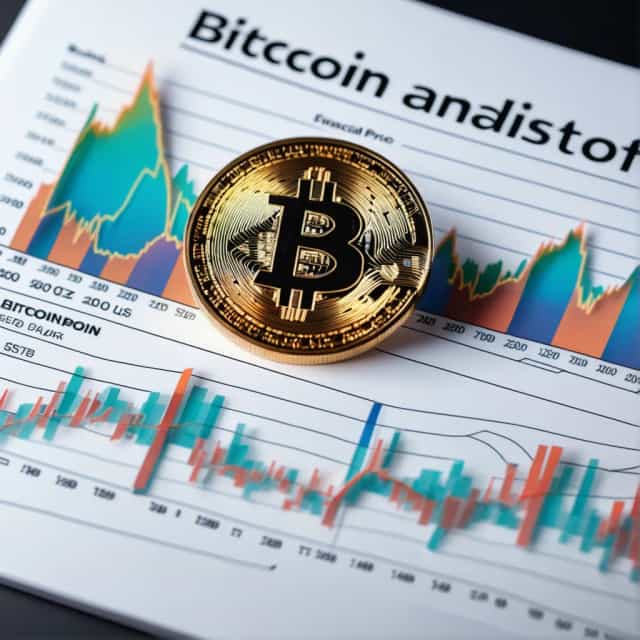
출처: Block Media
South Korea’s Regulatory Shift in Digital Asset Governance: Challenges and Perspectives
Tightening Oversight of Digital Assets
South Korea’s financial regulators are intensifying their efforts to firmly regulate the digital asset marketplace, even though the Digital Asset User Protection Act came into effect last year. During a recent parliamentary audit, the Financial Services Commission (FSC) and the Financial Supervisory Service (FSS) highlighted their commitment to stricter licensing and supervisory frameworks for digital assets, unveiling plans to further integrate the sector into South Korea’s financial regulatory ecosystem.
Despite these moves, industry insiders emphasize that isolation from global markets—rather than regulatory shortcomings—is the underlying cause of many of the domestic market's challenges. Restrictions on foreign investments and the prohibition of derivatives trading have created liquidity issues, which experts argue must be addressed through enhanced global market connectivity rather than tightening local regulation. Concerns such as recurring market phenomena, like "listing pump" events, serve as evidence of structural imbalances rather than inefficient governance.
Addressing Monopoly Risks in the Digital Asset Ecosystem
During the October 21 parliamentary audit, FSS Governor Lee Chan-jin voiced concerns over monopolistic tendencies within South Korea’s digital asset market. He warned that rushing to formalize mechanisms like stablecoins or security token offerings (STOs) under the current structural limitations could exacerbate these risks. He advocated for a regulatory and supervisory system inspired by the Capital Markets Act, suggesting legacy financial institutions play a role in monitoring digital asset exchanges to curb these monopolistic practices.
The FSC followed up with an announcement regarding its intent to replace exchange self-regulation with public regulation via secondary legislation. Under this new framework, criteria for listings, delistings, trading suspensions, and resumptions will be codified into law, creating disclosure systems similar to those applied within the traditional stock market.
Balancing Regulation and Market Growth
While regulatory authorities push forward, industry players warn of unintended consequences. Tight restrictions aiming to limit the discretion of domestic exchanges could lead to further liquidity constraints and market distortions. “Listing pumps,” which occur when assets experience artificial spikes in value upon being listed domestically, remain prevalent despite implementation of the Digital Asset User Protection Act. According to industry insiders, this issue stems from South Korea’s insular market structure rather than shortcomings in regulatory oversight.
The industry further emphasizes that limited connectivity with global markets constrains liquidity. "If regulatory pressure continues in isolation, domestic liquidity will continue to shrink, driving investors toward foreign or decentralized markets," warned a source from the sector, stressing the importance of openness and foreign capital integration for achieving market stability.
Persistent Price Discrepancies and Structural Limitations
Structural gaps in South Korea’s digital asset market have made sharp price discrepancies between local and international trading platforms a recurring phenomenon. Recently, tokens such as MOVE and AVAIL saw surges in domestic pricing shortly after listing, while widely circulated foreign tokens like ZKC and OPEN experienced dramatic post-listing drops within South Korea’s exchanges.
Experts argue that these pricing gaps stem from liquidity restrictions and the market’s isolation from global economics. Tiger Research recently highlighted this trend, pointing out the waning influence of South Korea’s digital asset marketplace as global leadership shifts toward U.S.-centric markets.
Declining Competitiveness Among South Korean Exchanges
Strict regulations, such as the prohibition of derivatives, are further eroding South Korea’s position in the global digital asset space. Tiger Research analyst Jo Yoon-sung revealed that monthly trading volumes in the domestic market have decreased by 62% compared to their peak in 2021. “Domestic exchanges simply cannot compete with global counterparts or decentralized exchanges (DEXs) under these conditions,” Jo noted.
At the same time, decentralized platforms such as Hyperliquid are gaining traction internationally. Launched last December, Hyperliquid offers advantages like on-chain transparency, reduced fees, and faster settlements—highlighting the inherent limitations of centralized exchanges under rigid regulatory environments.
Urging Policymakers to Prioritize Digital Asset Development
Jo further warned that South Korea risks falling behind global competitors due to the government's limited prioritization of the digital asset sector amid other economic concerns, such as recovering the broader economy and stabilizing real estate markets. “If neglected, Korea’s global competitiveness in the digital asset arena could deteriorate further,” he stated.
Nevertheless, Jo highlighted potential for progress, citing efforts by exchanges to upgrade their infrastructures and ventures into stablecoin development. He noted growing bipartisan recognition of digital innovation’s significance, hinting at the possibility of renewed enthusiasm for digital asset policies in the near future.
The Path Forward
South Korea’s journey toward balancing innovation with regulation stands at a critical juncture. While regulators aim to foster control and stability, industry leaders underscore the importance of global integration and market diversity to counteract liquidity stagnation and structural isolation. The nation’s ability to reconcile these priorities will ultimately shape its place in the competitive global landscape of digital asset markets.










